To mark the International Day of the World’s Indigenous Peoples, we are sharing an interview with Dr. Timothée Emini, a Baka Indigenous person from the East Region of Cameroon and the Coordinator of the Indigenous Peoples Leadership Programme at Well Grounded.
Timothée is a trailblazer. He is the first Indigenous forest person in Cameroon and Central Africa to publicly defend a PhD thesis — a symbolic and historic achievement. His daily work is deeply rooted in the promotion and defence of the human rights of Indigenous Peoples, a mission he carries with conviction and pride.
What does the International Day of the World’s Indigenous Peoples mean to you personally?
For me, this day is powerful. It’s a reminder of the global recognition of our rights, and it honours the Indigenous activists who fight every day for our communities. It’s a legitimate space where our voices can and must be heard, and a time to celebrate how far we’ve come.
On a personal level, it’s a moment to reflect on my own path. My leadership has grown from deep inner healing and a strong commitment to self-determination. I strive to stay connected to my identity and proudly rooted in my culture, while also navigating the realities of globalisation with discernment. My approach to leadership seeks to balance openness to the outside world with fidelity to our values.
In your view, what are some of the biggest challenges Indigenous Peoples in the Congo Basin face today?
Indigenous Peoples in the Congo Basin face complex and deeply entrenched challenges. One of the most significant is internalised discrimination; a legacy of colonial and social trauma that undermines self-worth. Added to this is ongoing marginalisation in society, minimal representation in decision-making spaces, and increasing restrictions on access to forests and natural resources, which are vital to our way of life. Globalisation also exerts a strong influence, eroding our cultural and spiritual roots.
To address these challenges, we need transformational leadership, the kind that begins with the self, awakens awareness, reinforces identity, and empowers individuals and communities to drive change from within while staying anchored in their own values.
How does the Indigenous Peoples Leadership Programme at Well Grounded fit into this context?
The programme is deeply aligned with this idea of transformation. Rather than offering pre-packaged solutions, we help participants become aware of their potential, rediscover themselves, and take action to find their own answers, individually or collectively.
What makes it different is its co-creative approach: communities are at the centre of their own transformation. This fosters autonomy, pride, and long-term change. It’s what sets Well Grounded apart, a way of working that truly honours Indigenous knowledge, identity, and aspirations.
Could you share a story or moment from your work that has stayed with you?
Yes. Not long ago, during a training on self-determination, I witnessed a powerful shift. At the start, some community facilitators hesitated to speak proudly about their Indigenous identity. But by the end, they were expressing themselves with confidence and pride. It was a striking sign of the programme’s impact.
I also remember a deeply spiritual experience in a Baka community. We were gathered in a traditional house – a moungoulou – as a violent wind and rainstorm approached. A spiritual elder took a stick, began tapping it against a stone, and spoke directly to the wind and rain. Within moments, everything calmed. It was a powerful reminder of the depth of our ancestral knowledge and the importance of keeping these traditions alive.
What message would you like to share with non-Indigenous allies and partners who want to support Indigenous rights and leadership in a meaningful way?
My message is to shift the paradigm. If organisations and partners truly want to support Indigenous peoples, they need to rethink the traditional approach. Rather than designing solutions for us, they should move towards co-creation, developing strategies that allow Indigenous peoples to become aware of their potential, to accept who they are, and to build their own path to change.
True transformation happens when people are given the space to walk their own journey. That’s when they discover themselves, adapt, grow, and ultimately find their own way, which may be very different from what others had imagined for them from the outside.
How are you celebrating the International Day of the World’s Indigenous Peoples this year?
Each year, the Indigenous Peoples Leadership Programme supports community-led celebrations of this day. This year’s celebration is especially meaningful. One of the participating communities decided to return to the roots, to celebrate in a fully Indigenous context.
There will be collective reflections on how communities want to shape future celebrations, discussions on the current state of Indigenous Peoples, and an evaluation of how well the programme has been integrated. All of this will culminate in spiritual and cultural festivities: a celebration in every sense of the word, and one that’s truly grounded in who we are.


